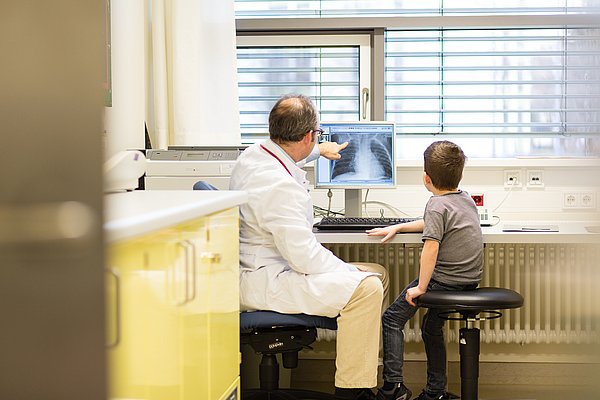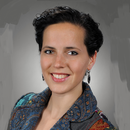The Hopp Children’s Cancer Center Heidelberg (KiTZ) is a joint institution of the German Cancer Research Center (DKFZ), Heidelberg University Hospital (UKHD) and the University of Heidelberg (Uni HD).).
In Germany, around 2,000 children and adolescents are diagnosed with cancer every year. Most of them can be cured, but in one fifth of young patients the cancer comes back. Despite intensive therapies, these young relapsed patients usually do not survive their disease. Pediatric oncologists believe one of the causes is the lack of new modern therapies. "Our studies show that less than 10 percent of children with cancer in Germany who relapse are treated in a clinical trial with modern drugs such as immunotherapeutics or targeted therapies or combinations of different therapeutics," says Olaf Witt, director at the Hopp Children's Cancer Center Heidelberg (KiTZ), head of the Clinical Cooperation Unit Pediatric Oncology at the German Cancer Research Center (DKFZ) and senior physician at Heidelberg University Hospital (UKHD), describing the depressing situation.
This is because even promising therapeutic approaches cannot even be tested in a clinical trial in most cases. Among other things, the very high costs and the enormous effort in preparation and implementation, amounting to millions, are responsible for this. "Preparing budget plans and documents for authorities and ethics committees, developing study protocols, generating preclinical data packages and concluding contracts with industry partners - these preparatory steps alone take years and involve very high personnel costs. Pediatric oncology facilities usually don't have the budget for this," Witt explains. At the same time, the pharmaceutical industry usually has little interest in such studies due to the comparatively low number of patients in pediatric oncology.
With its long-term funding, the Dietmar Hopp Foundation now wants to help improve the framework conditions for clinical development in pediatric oncology: "My foundation supports medical research and clinical applications to help people whose health is not on the sunny side of life. Improving cancer therapies for children is particularly close to my heart" says founder Dietmar Hopp. "That's why my foundation is not only supporting the construction of the new Hopp Children's Cancer Center in Heidelberg with 43 million euros: We would like to donate another 21 million euros to specifically advance the development of modern cancer therapies for children and adolescents. I hope that my financial support will lead to excellent forms of therapy so that even more young patients can be cured in the future."
Half of the funding will also be used to make the more than 1,000 adult cancer drugs currently in clinical development available to children. Only recently, legislation was changed in Europe and the U.S. so that drugs primarily developed for adults must now also be tested for use in children. This is precisely where the Dietmar Hopp Foundation's support comes in: Together with international partners, a globally accessible data integration platform is to be created at KiTZ. "The goal is to centrally integrate more than 5,000 molecular genetic and clinical data sets of pediatric cancers, and all those that will be collected in the future, into a kind of "data repository" to match molecular targets and parameters for predicting treatment success with existing drugs and also to identify new therapeutic approaches," explains project leader David Jones, head of department at KiTZ and DKFZ.
Doctors and scientists can then use the best matches to select drugs for clinical trials that are most likely to help children and adolescents. A total of 18 countries are involved in setting up the new clinical data platform for pediatric oncology. "This is a novel and technically very challenging approach, for which the infrastructural, technical, legal and ethical prerequisites must first be created across national borders," says Jones, explaining the future challenges of the project.
For Stefan Pfister, also Director at KiTZ, Head of Department at DKFZ and Professor at UKHD, the funding represents a very important step towards being able to offer better treatment options to children with cancer in the long term: "The support of the Dietmar Hopp Foundation enables us to establish new structures for therapy development, which we hope will help children with cancer worldwide. We would like to express our sincere thanks to Dietmar Hopp for his trust in our work at KiTZ."




